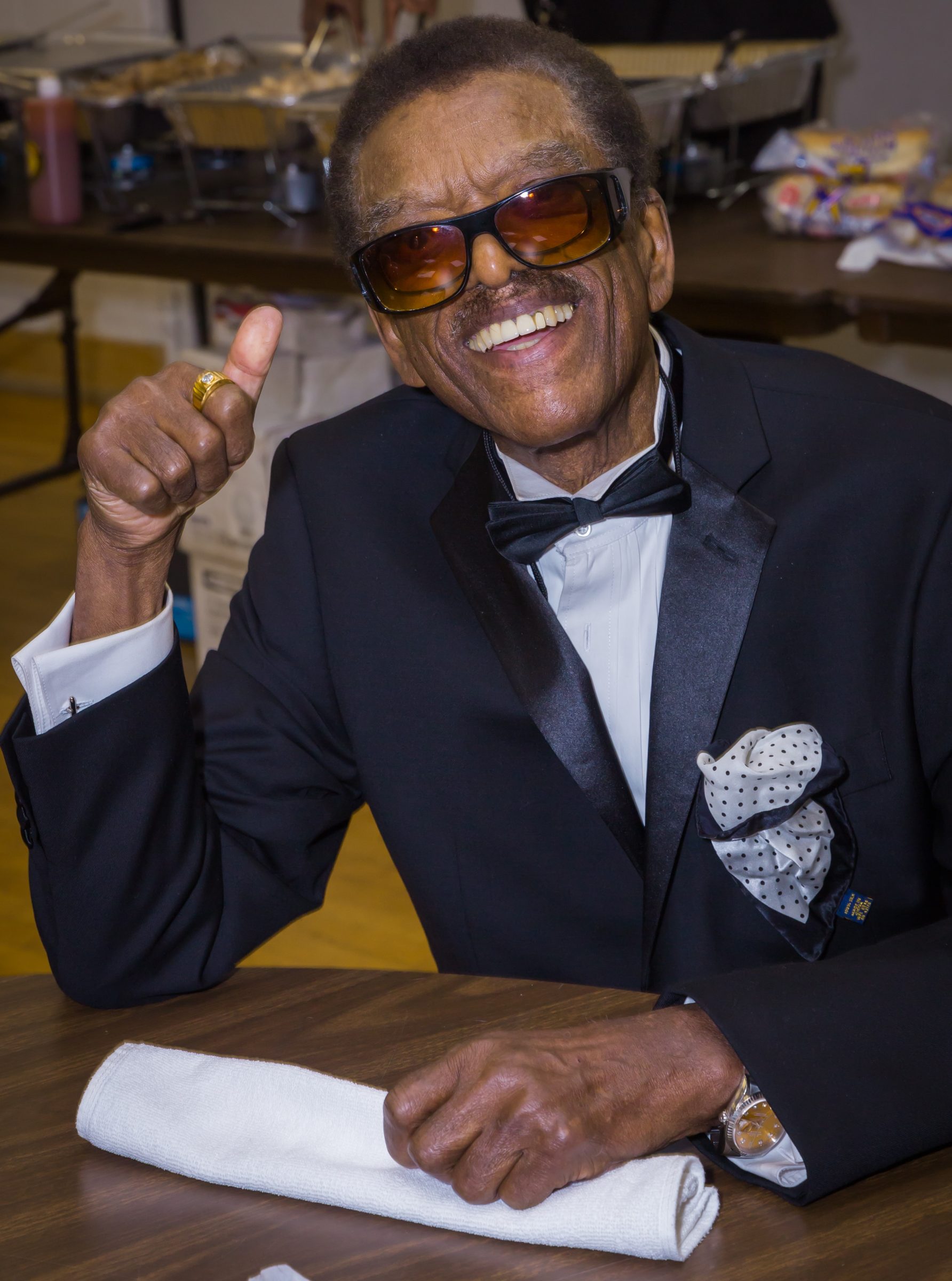“When I was growing up, Syl was one of my favorites. It was him and Al Green.” So says Boo Mitchell, co-owner of Royal Studios, when reminiscing about Syl Johnson, the electrifying soul singer who passed away this Sunday, February 6th, at the age of 85. And of course, Mitchell was likely the first kid on his block to hear Johnson’s recordings, as it was his late father Willie who produced the singer’s biggest hits.
For that reason, Johnson, who lived in Chicago for most of his life, is often associated with Memphis. And he’s often compared to Al Green, primarily because they were both backed by the Hi Rhythm Section on their records. But careful listeners focus more on what distinguished him from his better-known label mate. If Green was certainly sensual, a few listens to Johnson reveal a singer who is decidedly more carnal than the Reverend-to-be.
As Mitchell puts it, “That voice! You can’t compare him to Al Green; it’s just apples and oranges. If you listen to his version of ‘Take Me to the River,’ his voice just went right through you. He’s a different kind of artist with a different kind of voice. It was a different kind of energy. It was raw.”
Even before connecting with Willie Mitchell, Johnson was distinguishing himself as a soul singer with his own particular edge, often more overtly political than many performers of his time. “He was a bit of an activist,” says Mitchell. “He had his own label before he signed with Hi Records. Twinight Records. Is It Because I’m Black was on that label.” Beyond the title track, that same album included titles like “Concrete Reservation,” “Walk a Mile in My Shoes,” “I’m Talkin’ ‘Bout Freedom” and “Right On.”
As Johnson’s family noted when announcing his death, “He lived his life as a singer, musician, and entrepreneur who loved Black music. A fiery, fierce fighter, always standing for the pursuit of justice as it related to his music and sound, he will truly be missed by all who crossed his path.”
But his most enduring track may be “Different Strokes,” from his debut LP on Twinight. Clearly skewing more to the carnal side, various elements of the track have lived on through repeated sampling. The track’s horn parts were used by the Wu-Tang Clan, its vocals were used by Kanye West and Jay-Z, and other elements can be heard on De La Soul’s “The Magic Number,” Eric B & Rakim’s “I Know You Got Soul,” and Public Enemy’s “Fight the Power.”
Though he released other material after he left Hi, Johnson focused much of his energy on his Chicago-based chain of restaurants, Solomon’s Fishery, through the ’80s and beyond.
As the current century dawned, he reappeared on the music scene once again. Part of that included his return to Memphis, to work at Royal once more. As Mitchell recalls, “He came to Memphis to record stuff with his daughter, Syleena. That was the first time I worked with him. He wanted Rev. Charles Hodges to put some organ on there. And then when [the 2015 film] Take Me to the River came out, we had a big concert at South by Southwest and Syl performed. He was hanging out backstage with Snoop Dogg and the banter was incredible!”
He was the main feature of another 2015 film, Syl Johnson: Any Way the Wind Blows, featured at the Indie Memphis Film Festival that year, complete with a performance by Johnson backed by the Bo-Keys.
His final performance in the Bluff City came shortly after that, in honor of the place where so many Hi artists had made history. Says Mitchell, “He performed at the Royal Studios 60th Anniversary Celebration in 2017. And his energy … he was on fire! He was about 80 then, but man, he brought it. And he’s one of the most underrated harmonica players of the time. He had his own style. It was more of an R&B approach than blues.”

As Mitchell sees it, Johnson represented much more than just his own formidable talent as a singer, songwriter, and instrumentalist. He captured the spirits of the two great American cities with which he’s associated. “If ever there was a dual ambassador of Chicago and Memphis, it was Syl Johnson. He personified both cities. Otis Clay did too, in his own way, but Syl really captured the grit of both cities. He had a little Chicago in his Memphis and a little Memphis in his Chicago.”
Ultimately, Mitchell says, it was Johnson’s dynamic personality that people found so energizing. “Syl was hilarious, man. He was a funny cat. And he didn’t take no stuff from nobody!”
